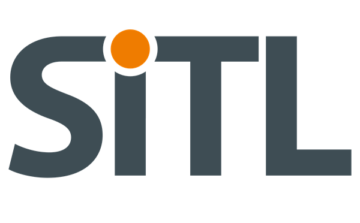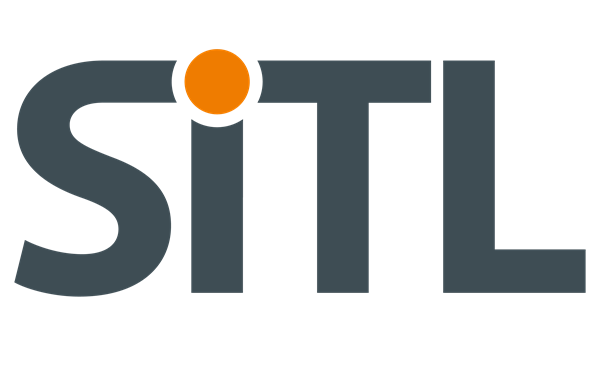Jean-André Lasserre, Directeur de programme Low Carbon : “Il ne peut y avoir de LUD sans implication effective des acteurs économiques”
https://drive.google.com/drive/folders/1pl6h2cqOJl6Uj5wo5XoGYup2TmrbAuvd?usp=share_link
Comment InTerLUD accompagne les collectivités pour développer une logistique urbaine durable
Le programme InTerLUD a été lancé en 2020 pour déployer des chartes de logistique urbaine durable dans 40 EPCI en France. Jean-André Lasserre, représentant de Logistic-Low Carbon (LLC), explique comment ce programme s’engage avec les acteurs économiques pour atteindre ses objectifs et accompagner les collectivités dans leur transition écologique.
Quelle est la genèse d’Innovations Territoriales et Logistique Urbaine Durable ?
Le programme InTerLUD, lancé en 2020 par un consortium Cerema, Logistic-Low Carbon (LLC) et ROZO, accompagne le déploiement de chartes de logistique urbaine durable. Il ne peut y avoir de LUD sans implication effective des acteurs économiques. Ce déploiement territorial engage 40 EPCI, recouvrant 30% de la population active, et s’accompagne par le développement d’outils communs. Comme le guide méthodologique pour les collectivités, des supports et actions de formation, des séminaires et des services numériques autour des ZFE-m.
Comment Logistic-Low Carbon se trouve-t-il impliqué dans ce programme ?
LLC est chargé de sensibiliser, mobiliser et accompagner les acteurs économiques. Nous avons été créés par la CGF pour nous inscrire dans cet objectif de façon indépendante et se mettre au service des 18 entités avec lesquelles nous travaillons. La méthode d’InTerLUD a ainsi inspiré la mise en place des comités techniques de liaison.
Quels sont les objectifs d’InTerLUD?
En commençant le déploiement territorial, on a fait un important travail d’explication et d’organisation dans les collectivités, avec la désignation d’un chargé de mission LU pour développer des plans d’actions. Leur montée en puissance et la mise en place des ZFE ont créé une dynamique avec de nombreux projets. C’est toute l’ambition de LUD+ qui va remplacer InTerLUD pour atteindre les 61 EPCI engagés.
Quels acteurs impliquer ?
Les politiques des transports LUD placent au cœur de la démarche les organisations professionnelles, l’engagement des fédérations s’effectuant au nom de tout un secteur. Il n’y a rien de pire que des politiques publiques reposant sur un fort partenariat avec le privé, composé d’entreprises qui ne représentent qu’elles-mêmes.
Stand P036
InTerLUD présent sur de nombreux événements à la SITL
InTerLUD se mobilise durant la SITL à travers des tables rondes et des conférences. Sans oublier le stand InTerLUD pour une présentation de l’entreprise !
- Ateliers sur les outils développés le 29 mars à 12h15, et sur la logistique du quotidien pendant les JO le 28 mars à 15h35.
- Table ronde le 29 mars de 10h à 11h sur “ZFE : quelles perspectives, quelles bonnes pratiques ?”
- InTerLUD sera également représenté sur le thème “Quel pilotage de la logistique urbaine ?”, le 30 mars de 15h à 16h. Localisation : Grande Scène
- Deux tables rondes le 28 à 14h et le 29 mars à 11h sur Radio Supply Chain.
Localisation : Acts Room
Jean-André Lasserre, Low Carbon Programme Director: “There can be no LUD without the effective involvement of economic actors.”
How InTerLUD supports communities in developing sustainable urban logistics.
The InTerLUD program was launched in 2020 to deploy charters for sustainable urban logistics in 40 EPCIs in France. Jean-André Lasserre, representing Logistic-Low Carbon (LLC), explains how this program engages with economic actors to achieve its goals and support communities in their ecological transition.
What is the origin of Territorial Innovations and Sustainable Urban Logistics (InTerLUD)?
The InTerLUD programme, launched in 2020 by a consortium involving Cerema, Logistic Low Carbon and Rozo, supports the deployment of sustainable urban logistics charters. There can be no LUD without the effective involvement of economic players. This territorial deployment involves 40 EPCIs covering 30% of the working population and is accompanied by the development of common tools. These include a methodological guide for local authorities, training materials and actions, seminars and digital services around the ZFE-m.
How is Logistic Low Carbon (LLC) involved in the programme?
LLC is raising awareness, mobilising and supporting economic actors. We have been created by the CGF to be part of this objective in an independent way and to serve the 18 entities we work with. InTerLUD’s method has thus inspired the setting up of technical liaison committees.
What are the objectives of InTerlud?
When we started our territorial deployment, we did a lot of explanations and organisational work within local authorities, with the appointment of an LU project manager to develop action plans. Their growth in power together with the introduction of EPZs have fostered a dynamic with numerous projects. This is the ambition of LUD+, which will replace InTerLUD to reach the 61 EPCIs involved.
Which actors should be involved?
LUD transport policies place professional organisations at the centre of its approach, with the federations’ commitment being made on behalf of an entire sector. There is nothing worse than public policies based on a strong partnership with the private sector, as it is made up of companies that only represent themselves.
Stand P036
InTerLUD presents at SITL events
InTerLUD is featuring at SITL through round tables and conferences, not forgetting the InTerLUD stand for a presentation of the company!
- Workshops on the tools developed on 29 March at 12.15pm, on daily logistics during the Olympic Games on 28 March at 3.35pm.
- Round table on 29 March from 10am to 11 am on ZFE: which perspectives, which good practices?
Location: Stage Room - InTerLUD will also be represented on the theme What management of urban logistics? on 30 March from 3pm to 4pm. Location: Actually Room
- Two round tables on 28 March at 2pm and 29 March at 11am on Radio Supply Chain.

